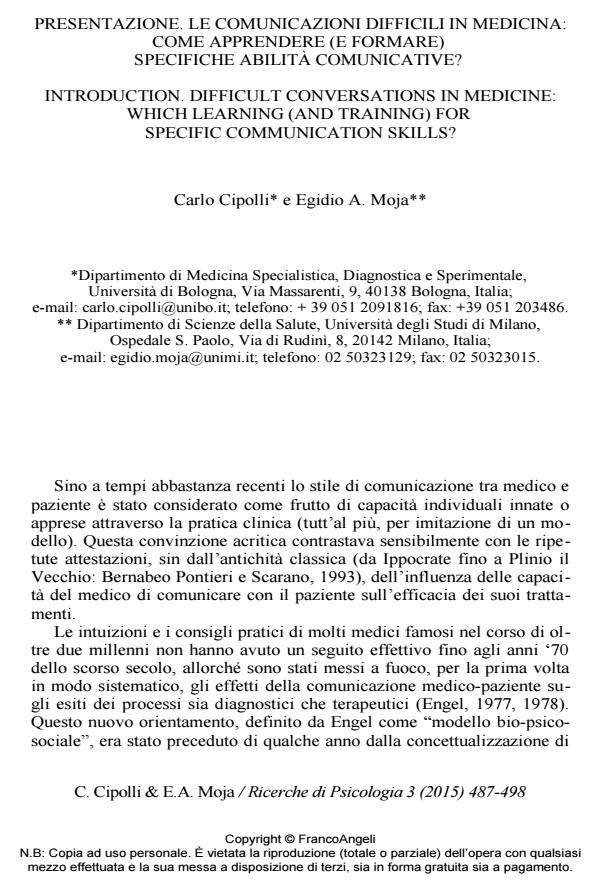Presentazione. Le comunicazioni difficili in medicina: come apprendere (e formare) specifiche abilità comunicative?
Titolo Rivista RICERCHE DI PSICOLOGIA
Autori/Curatori Carlo Cipolli, Egidio A. Moja
Anno di pubblicazione 2015 Fascicolo 2015/3
Lingua Italiano Numero pagine 12 P. 487-498 Dimensione file 162 KB
DOI 10.3280/RIP2015-003003
Il DOI è il codice a barre della proprietà intellettuale: per saperne di più
clicca qui
Qui sotto puoi vedere in anteprima la prima pagina di questo articolo.
Se questo articolo ti interessa, lo puoi acquistare (e scaricare in formato pdf) seguendo le facili indicazioni per acquistare il download credit. Acquista Download Credits per scaricare questo Articolo in formato PDF

FrancoAngeli è membro della Publishers International Linking Association, Inc (PILA), associazione indipendente e non profit per facilitare (attraverso i servizi tecnologici implementati da CrossRef.org) l’accesso degli studiosi ai contenuti digitali nelle pubblicazioni professionali e scientifiche.
Carlo Cipolli, Egidio A. Moja, Presentazione. Le comunicazioni difficili in medicina: come apprendere (e formare) specifiche abilità comunicative? in "RICERCHE DI PSICOLOGIA " 3/2015, pp 487-498, DOI: 10.3280/RIP2015-003003